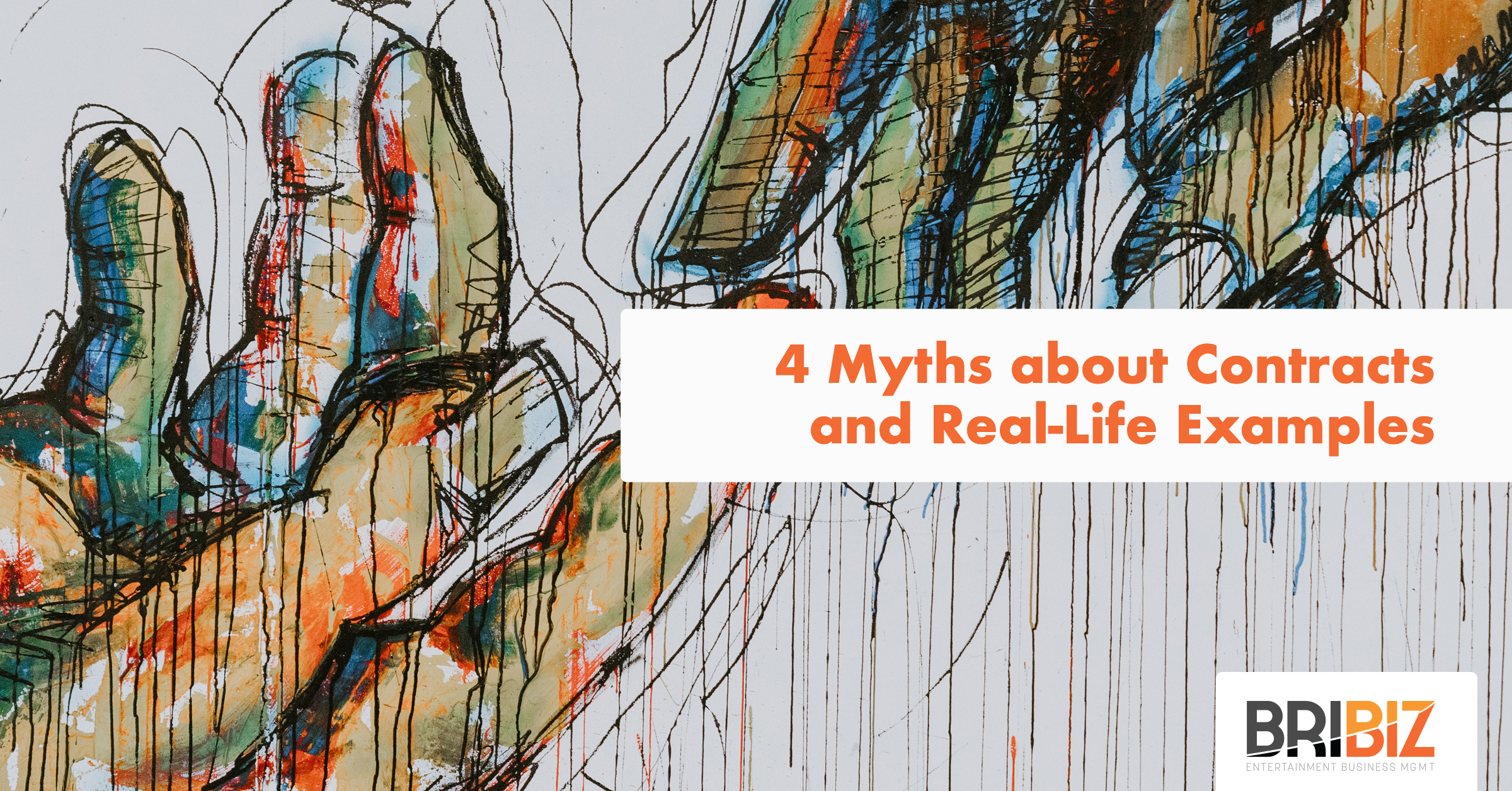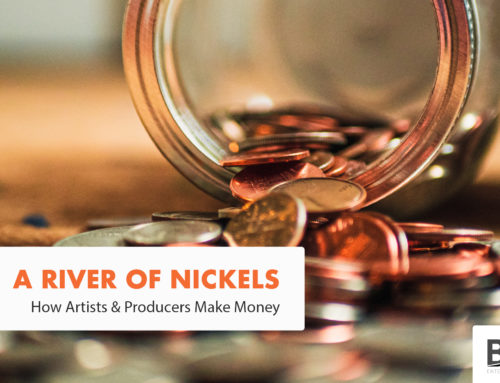You’ve heard the horror stories. Maybe you were involved in one yourself.
Bands that break up over unclear roles and royalties. Artists that unknowingly sign unfavorable contracts. Musicians locked in exploitative deals. Managers investing in clients, only to be dropped when the artist makes it “big.” Handshakes agreements that go awry, and now everyone is in court.
There’s a lot to be gained–and lost–in this industry. But there’s one document that can help you navigate your way through negotiations and agreements: a contract. Yet, in my experience, some remain suspicious about contracts.
I’m here to share with you the four myths I hear about contracts and what I think about them.
Myth 1: Handshake contracts are always the best.
The music and arts industries are primarily built on relationships–this is why the handshake deal can often feel like the most natural form of agreement between two parties. You, the artist, musician, or manager may prefer the handshake deal because it seems less likely to trap you in an ironclad agreement. You don’t want to be confined to “the rules,” which can suppress your individuality. So, you come to an arrangement with your manager, bandmates, clients, or producer in a low-key environment. Everyone’s happy. Everyone’s relaxed.
Until they’re not.
Suddenly, it’s time to undergo a major transition and that relaxed arrangement you came to now has many grey areas, nuances that could end up costing you and/or hurting the relationship. No one quite remembers what was said over that handshake deal–everyone has a different version or interpretation of events.
Am I warning you away from handshake deals completely? Not necessarily. There are those for whom the handshake deal will work, but it’s hard to say who those people are…until it’s too late. In the meantime, get something (anything) in writing. A written contract, or even just an email, will protect you from the unknown.
Real-life example:
In the early years of a band’s efforts, the manager offers to waive their fee. They want to support the artist and help build momentum. But later, when the band and the manager part ways, the manager wants their fee back–either through direct payments or through a sunset clause. Because nothing was ever written down, people now must negotiate the exit package. If terms had been written when the fee was initially waived, it would have saved both parties the time and energy of negotiating after the fact.
Myth 2: Contracts hurt me, the artist.
I talk to a lot of artists and musicians who express the fear that contracts exist only to protect the managers, corporations, labels, or anyone else with power. They worry it will constrain and work against them. But in reality, contracts exist to protect both parties.
Here are a few helpful considerations that a contract would cover for you:
- Does your manager get a sunset clause? If so, for how long, and on what products?
- Do you hope to develop other works outside your primary offering (e.g., books, apparel, speaking engagements)? Does your manager receive a percentage of those royalties?
- Has your band talked about royalties for covers of your music?
Real-life example:
Without a contract, you will have to fight for yourself. And while you may be able to push through negotiations to earn your due, unfortunately, you could end up damaging your reputation in the process. You may hurt your position in the industry, with others labeling you “difficult.” Now, are you being difficult for standing up for yourself? Of course not. But a contract eliminates the negative and emotional talk that can spread. Let the contract be your enforcer, and you won’t have to compromise your reputation by being your own enforcer. A pre-negotiated contract allows you to get your due, without ruffling too many feathers.
A good contract protects the interests of all parties involved, including the musicians and artists. Many worry that a contract establishes a legalistic relationship, but contracts don’t have to be confining. Think of a contract as a starting point for negotiation. It gives you a clear point from which to begin the conversation.
But you do need to negotiate on the front-end for parity; you may not get the opportunity to negotiate on the back-end. I know too many musicians who were so desperate for the record deal or the management contract that they agreed to an unfair arrangement. Make sure you get counsel, which leads me to the next myth:
Myth 3: I can’t afford to create a contract.
Some think that they can’t afford to pay to have a contract set up or reviewed. But in my experience, the protection outweighs the cost and could potentially save you thousands of dollars.
Real-life example:
A band negotiates with a record label for a lowered buyback rate, which would greatly influence their profits while on tour. But then the label is acquired by another label, which then tries to charge a regular, increased buyback rate. Because of the contract, however, the band is able to push back against the label. Sure, there are some awkward exchanges, but in the end, everyone agrees that the lowered buyback rate is right there in black and white. So this band spends $5-6k on a contract (you could spend more or less than this amount) and saves $30k because of that contract.
Your artist offering is a business, and you are the business owner. A contract is a start-up investment that protects your current and future assets. Getting a contract makes you a good business person; it’s professional and prudent. Your contract with managers, bandmates, clients, or labels could represent the next 5-20 years of your career. How much is that time and influence worth to you?
Also, consider this: sometimes contracts are open to interpretation, which is why it’s good to have someone in your corner. This is where outside counsel helps you. Lawyers can show you what’s unusual, where you have leverage, what’s open to negotiation, and what’s not.
Need a recommendation for a good lawyer? Business managers, like myself, are a good place to start. We can find the right representation for your niche and who charges a fair market rate.
Myth 4: Contracts will hurt my relationships.
This is probably the biggest myth of them all–and it’s absolutely backward.
It’s the lack of a contract that hurts relationships. Contracts serve to protect your relationships. They establish healthy and professional boundaries. I’m not going to lie; it can feel formal or awkward at the outset, but you’ll be happy you have it down the road.
Real-life example:
A band makes an internal agreement when they write a song, which is later ratified when the song is produced. Years later, others outside the band try to stir up drama. But the entire band easily defends their decisions because the contract was clear. It saves them heartache and preserves the relationships in the band.
At the end of the day,
A good contract can support your handshake deal.
A good contract is omnidirectional, protecting all parties.
A good contract will give you a return on your investment when it protects your earnings.
A good contract will preserve your relationships through the highs and lows of a career in the music industry.
Do you have a contract you need to set up? Or an old one needing review? Let’s talk.







Leave A Comment